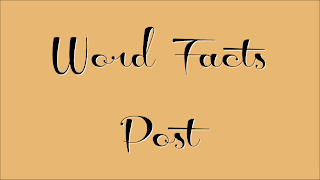1328: Early Linguistic Anthropology Jul 31, 2018
Before certain achievements in the fields of anthropology and archeology, were developed, linguists would study languages and draw conclusions about migration patterns and other history. To be clear, this happens today as well, but usually in tandem with genetic information and anthropology. Some outrageous claims, even for the time included the ideas that Germans settled Ethiopia, or that Norwegians settled in North America. The latter happens to be true, however, both of these were tested in the early 17th century based upon lists of "core vocabularies" (familial terms, numbers, natural features, etc.) and other more superficial relations, which were quickly disregarded by academics. The explanations they had will be discussed tomorrow. Check out the newest Word facts Video: https://youtu.be/2u5SP0tg6Fs , and give your support on Patreon: https://www.patreon.com/wordfacts

